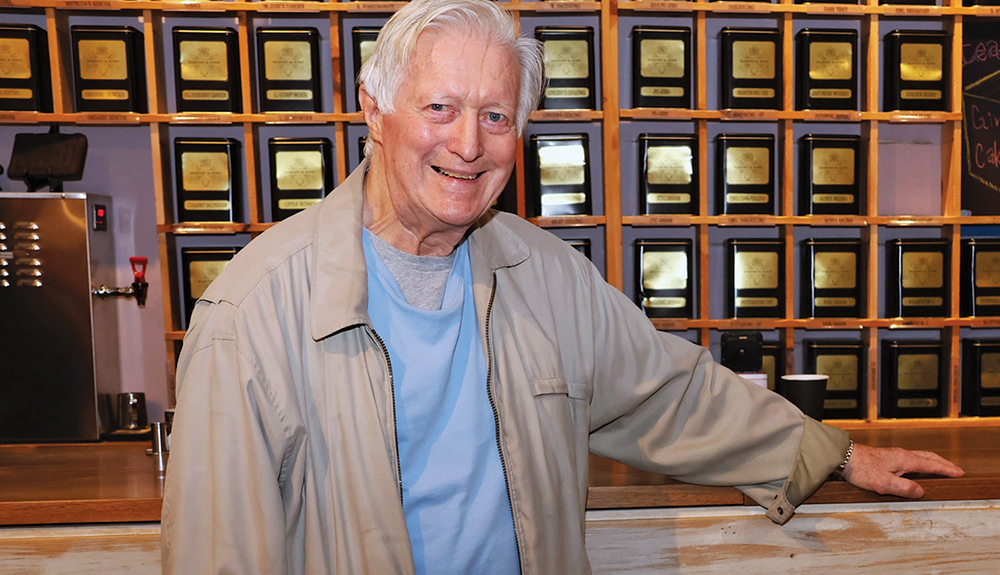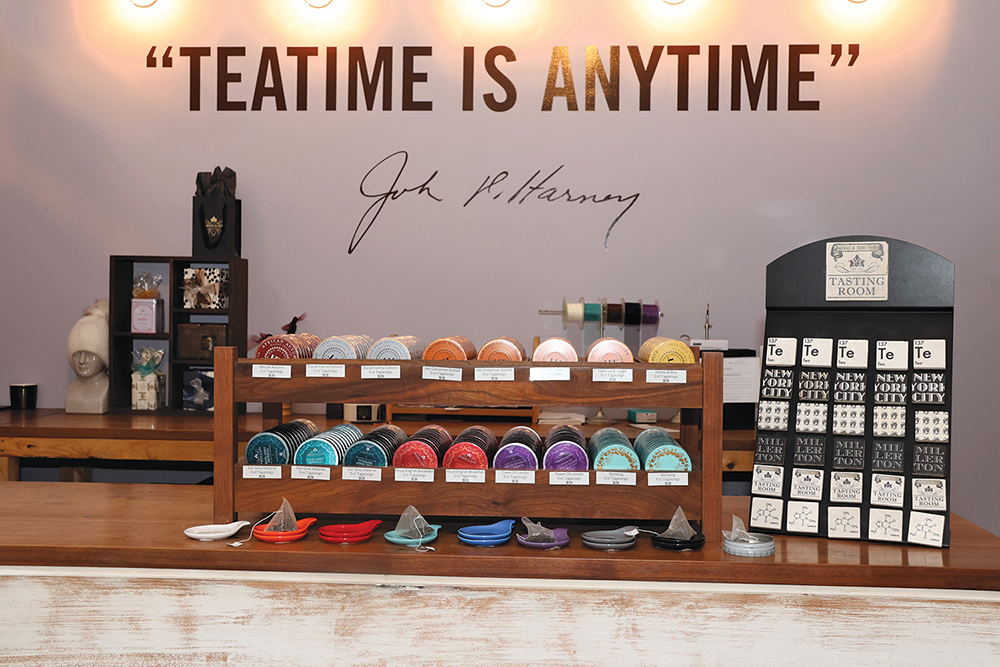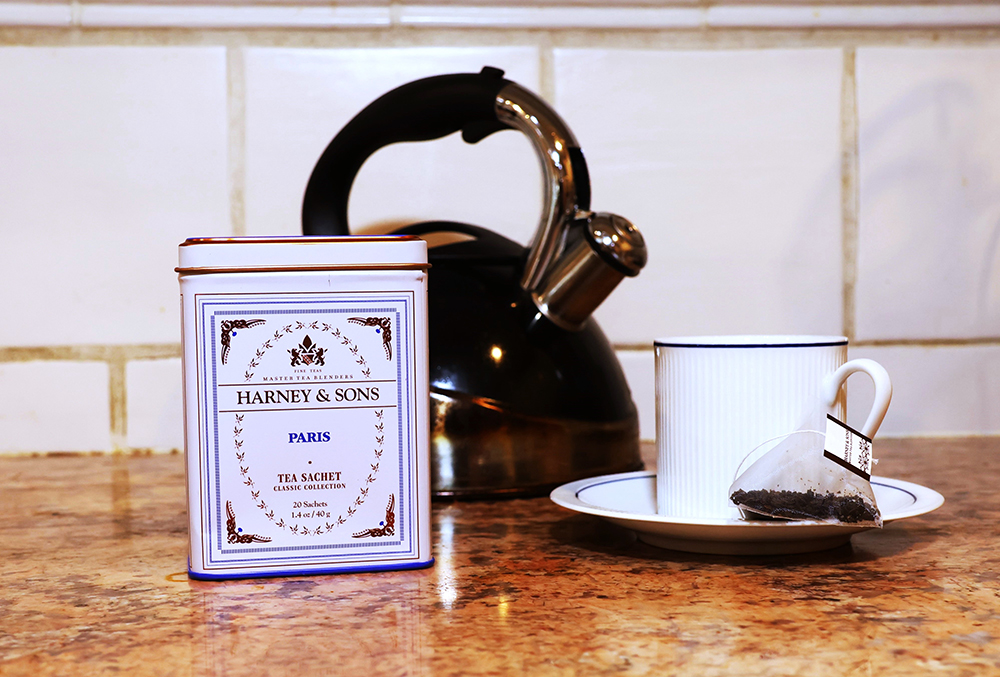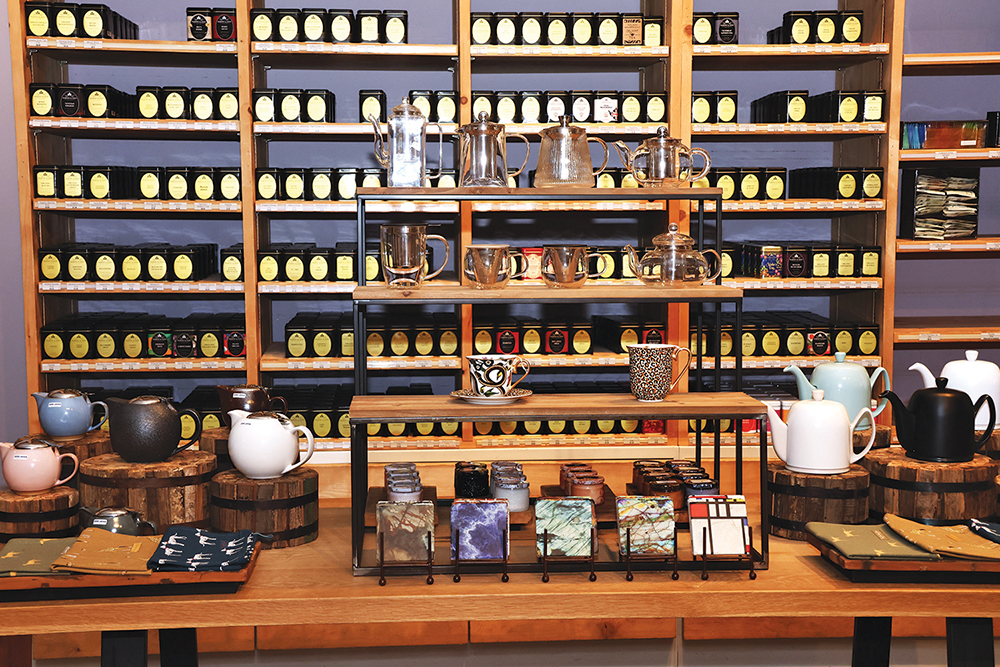
Mark Cooper, a fine foods distributor, first met John Harney at a trade show and sold him coffee for guests of the hotel he owned in Connecticut. But their partnership really took off when Harney introduced Cooper to tea.
Harney was developing a fledgling business selling high-quality loose tea. Cooper, who had 25 years in the New York advertising business behind him and a growing collection of distributorships for fine foods and beverages, knew Harney was going somewhere with his quality tea. He told Harney he wanted to become a distributor for the line, selling to corporate clients in the U.S. and hotels in the Caribbean. Cooper surmised that hotel guests would appreciate a glass of delicious iced tea on a hot sunny day, and a soothing cup of premium hot tea when the sun went down.
Over the next 20 years, Cooper built strong relationships with a network of distributors, and helped turn Harney & Sons Tea into a multimillion-dollar global family business, now headed by Harney’s sons Mike and Paul Harney. Cooper is bringing Harney & Sons Tea to hotels, restaurants, catering companies and businesses so they can offer their customers a top-of-the-line product. Retail customers can enjoy the full range of Harney & Sons Tea by ordering from www.Harney.com. Harney & Sons teas are certified kosher under KSA supervision.

Mike and Paul Harney have carried on their father’s vision by traveling the world and developing relationships with growers of the finest teas. Like wine, the quality of tea depends on where it’s grown and how it is processed. All tea is picked twice a year. Spring is when the first flush is picked and that’s the best. The second flush is picked in the fall.
There are three ways to process tea. Loose leaves are considered the tops and brewed by infusing the leaves inside a container in boiling water. Tea bags were invented to make the process more convenient and consumer-friendly, but quality is lost. The machines that process tea bags must break the leaves, destroying some of the flavor. A newer process provides the best of both worlds—a sachet contains full-leaf tea and can be placed in a cup like a tea bag. The sachets are packaged in a tin to prevent moisture, which quickly degrades tea quality.
Harney & Sons Tea has a sprawling headquarters compound in Millerton, a rural enclave in New York’s Hudson County. That’s where all the tea comes in to be packaged and shipped. Every morning, at a long table, Mike Harney, his purchasing manager and one other person taste the day’s newly arrived shipments, to make sure the quality that attracted them to the tea they tasted overseas is in the batch they have imported. Cooper said the tasting is somewhat akin to the way wine is tasted and then spit out. The tea is “slurped” from a special cup. With the Harney seal of approval, the tea is packaged and shipped.

Cooper and I had our own tasting closer to home at the Harney & Sons Tea retail store at 433 Broome Street in Soho, where I learned a lot more about what makes a good cup of tea. On one side of the store, shelves are filled with containers of loose tea, sachets and tea bags made from tea leaves grown around the world. In addition to the many single-sourced varieties, Harney’s makes their own blends. Some are created as fundraising vehicles for nonprofits that receive 10% of the profits for each package sold. Cooper, who was born in England, pointed out A Midsummer Night’s Tea, which he personally created to benefit Shakespeare’s Globe Theater.
A large tasting area spans the wall on the other side of the room. A customer can select a tea and a server prepares it for tasting. Since tea quality is based not only on the temperature of the water but the time it steeps, the server gets the cup ready, pours boiling water over the sachet and sets a timer for the precise amount of time needed for the selection: three minutes for green tea, five minutes for black. For our tasting, I asked for a paper cup to avoid any kashrut issues, since there is a café in the back of the store that serves non-kosher food.
At Cooper’s suggestion we chose the Paris blend, which Mike Harney created for his wife, Brigitte, who is French. It’s a full-bodied black tea with luscious vanilla, caramel and black currant flavors and natural bergamot oil (the dominant flavor in Earl Gray tea), and no aftertaste. I also tried the Hot Cinnamon Spice, a black tea with cinnamon, orange peel and cloves, that engulfs you with an explosion of sweet cinnamon taste. I purchased tins of both.

I like tea as an afternoon pick-me-up with just the right amount of caffeine. Mick Jagger famously sang that tea at 3 is a “nasty habit,” but it’s my favorite time to enjoy a cup of tea and banish that feeling of wanting to close my eyes for a few minutes. The Hot Cinnamon Spice tea satisfies a craving for something sweet yet has no calories. Can’t beat that.
If you like tea, don’t settle for a mediocre variety. Spend some time on the Harney & Sons website, www.Harney.com, to learn all about tea and choose a few selections. Or visit the Harney & Sons retail store at 344 Broome Street in Soho. Planning a simcha or working on a company, school or organization dinner? Ask your caterer to contact Mark Cooper, Markcooperltd@verizon.net to serve Harney & Sons tea and leave your guests with a great tasting finale.










